Search Images
Browse Content (p. 1280)

Image
Woolly mammoths
A herd of woolly mammoths, as depicted by Charles R. Knight.
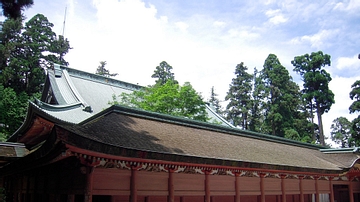
Image
Konponchudo, Enryakuji
The 1642 CE Konponchudo, main hall of the Buddhist Enryakuji temple on Mount Hiei, Japan. The building stands on the site of the original shrine built by Saicho, also known as Dengyo Daishi, (767-822 CE), the monk and scholar who founded...
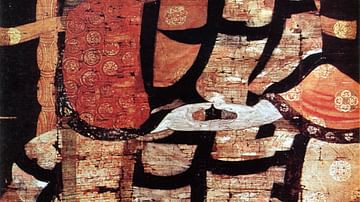
Image
Saicho (Dengyo Daishi)
Saicho, also known as Dengyo Daishi, (767-822 CE) was a monk and scholar who founded the Buddhist Tendai Sect in Japan.
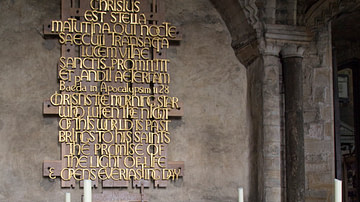
Image
Shrine of Saint Bede the Venerable
Tomb of Bede the Venerable, Durham Cathedral.

Image
Collected Works of Bede
This beautifully engraved title page from a 1612 edition of the collected works of St. Bede contains a wonderfully stern admonition pasted onto to it at the bottom that threatens excommunication for anyone who might misappropriate the book.
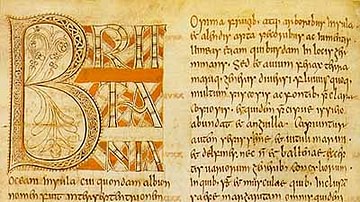
Image
St. Petersburg Bede
Illuminated Anglo-Saxon manuscript, a near contemporary copy of Bede's Historia Ecclesiastica Gentis Anglorum. Russian National Library, Saint Petersburg.
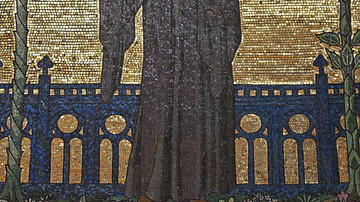
Image
Bede the Venerable
St. Bede the Venerable (c. 673-735 CE), Westminster Cathedral.

Image
Pagoda, To-ji Temple
The pagoda of the To-ji temple, Kyoto Japan. The temple was first built during the reign of Emperor Kammu (781-806 CE) and the pagoda added in 826 CE. It was subsequently destroyed by fires but then restored. It is the largest pagoda in Japan...
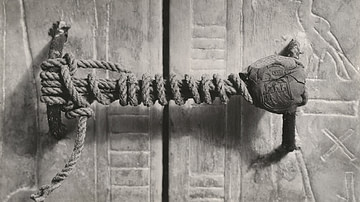
Image
Seal of Tutankhamun's Tomb
The unbroken seal on the inner third shrine of Tutankhamun's tomb, c. 1327 BCE. Photo by Harry Burton, 1922.
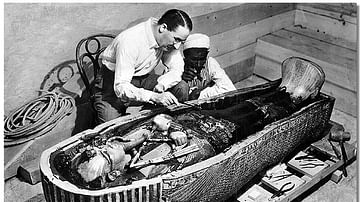
Image
Howard Carter & Tutankhamun
Howard Carter examining the sarcophagus and mummy of Egyptian pharaoh Tutankhamun (r. c. 1336 to c. 1327 BCE) in 1922.
New York Times Photo Archive.